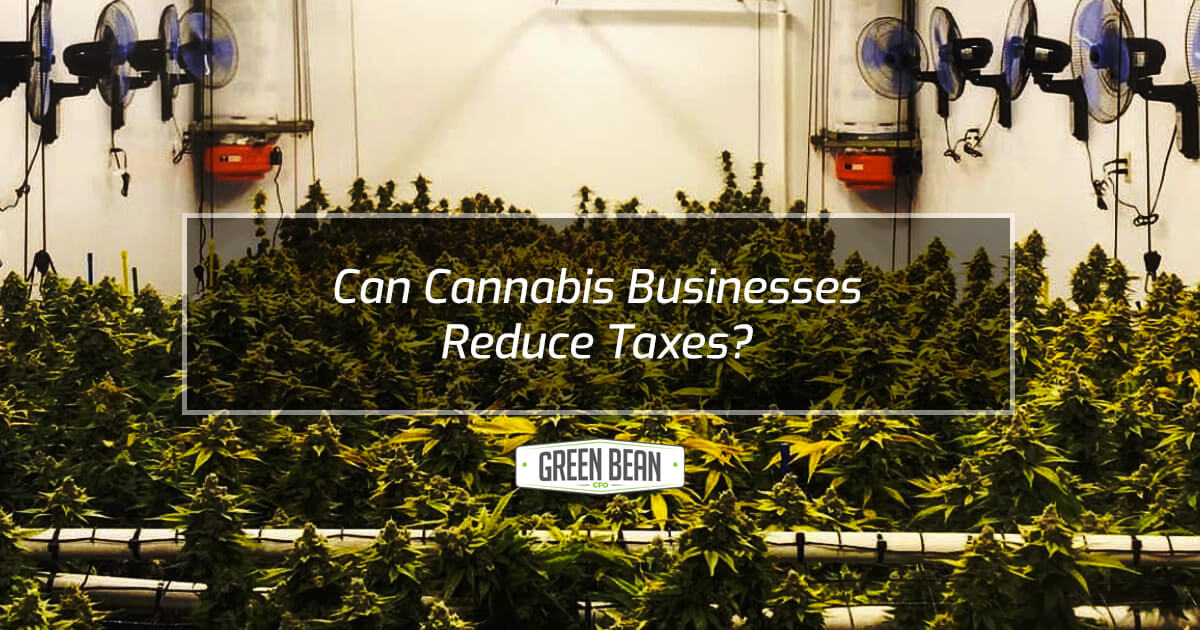Can Cannabis Businesses Reduce Taxes?

YES! A Brief Explanation[1]
Brian S. Whalen, CPA, MST/MSF
Internal Revenue Code Section §280E disallows deductions related to trafficking in controlled substances such as cannabis (including phone, auto, rents, employee wages, etc., as deductions are determined by the “legislative grace” of Congress); however, the Costs of Goods Sold (COGS) are excepted from this disallowance, as taxing beyond “income” is unconstitutional.[2]
Thus, any cost properly included in inventory may be capitalized to inventory and deducted, but only if COGS is computed per the appropriate tax rules.[3] The line between COGS and the disallowed deductions of §280E are drawn by inventory capitalization rules that define the cost of inventory, and thereby the COGS.[4] Specifically, Manufacturers who grow or produce marijuana-based items must use the full absorption method of inventory costing.[5] In addition, grower/producers and some high-earning resellers are generally subject to the more stringent Uniform Capitalization Rules (UNICAP Rules) as well.[6] Although it may be permissible, full absorption rules do not apply to resellers who do not produce what they sell.[7] Whether required or not, all marijuana businesses should voluntarily comply with both rules in order to maximize COGS, in turn lowering taxes. Note: these rules are also IRS “best practices”!
Q) What does all the above mean?
A) Marijuana business owners must capitalize expenditures to inventory properly to get a deduction for COGS upon the sale of said inventory. Don’t let the bottom line be zero, its your tax deduction:
| Opening Inventory | $900,000 |
| Less: Inventory costs incurred in year | $500,000 |
| Cost of Goods Available for Sale | $400,000 |
| Less: Ending Inventory | $100,000 |
| COGS | $300,000 |
REFERENCES
[1] This condensed explanation and footnotes 2-7 were derived from a portion of a research paper available online:
Roche, Jr., Edward J. Federal Income Taxation of Medical Marijuana Businesses. Tax Lawyer, Vol. 66, No.2. University of Denver Sturm College of Law, 2013.
[2] Disallow deductions – See I.R.C. § 280E & Californians Helping to Alleviate Med. Problems, Inc., 128 T.C. at 182.
Legislative grace –New Colonial, 292 U.S. at 440
Except COGS – See S. Rep. No. 97-494 (Vol. I), at 309 (1982), reprinted in 1982 U.S.C.C.A.N. 1050,1050-51
Income – Gross income defined in Treas. Regs 1.61-3(a) & 1.162-1(a)
Unconstitutional – U.S. Const. Amend. XVI.
[3] Tax rules – See I.R.C. § 263A(a)(2); Reg. 1.263A-1(c)(1), 1.471-3(b)
[4] Inventory Capitalization – 263A(a)(1)
[5] Inventories of Manufacturers – Reg. 1.471-11, with Direct Production, Material, & Labor costs per -11(b)(2) and
Indirect Category I, II, & III Costs per -11(c)
[6] UNICAP for Farmers – Reg. 1.263A-1(a)(1)
Resellers – See I.R.C. § 263A(b)(2)(b) small business exception < $10MM gross receipts on 3-year rolling
[7] Resellers – 1.471-3(b) -8.
Photo Credit – IG: @trueherbalcompassion




